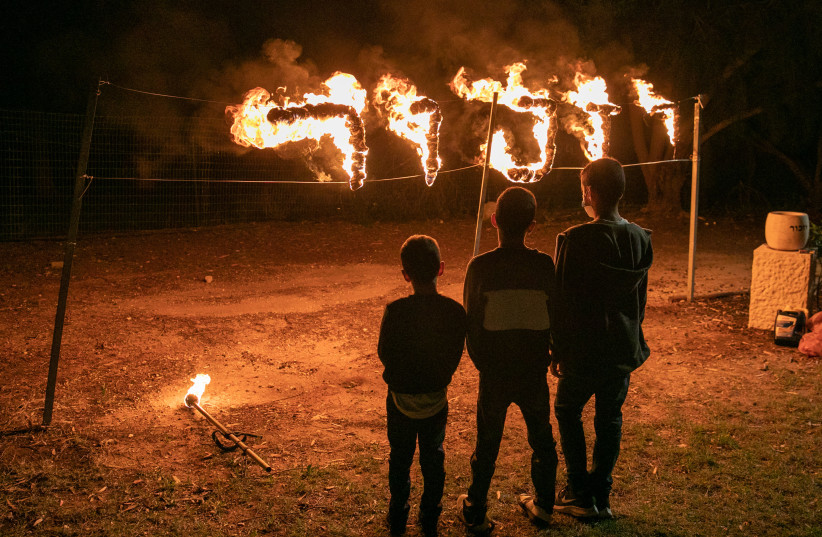Last time I looked, Israel was a country in its own right. Nowhere is there a country named Israel/Palestine. But that’s how it is often perceived around the world and right here at home.
How else can one explain the growing desire to connect Remembrance Day to honor Israel’s fallen soldiers and victims of terrorism with Palestinians who have been killed by Israeli security forces?
There is certainly a time and a place for such commemorations, like the ones that took place on Tuesday night and have been taking place for a number of years. Regardless of the circumstances surrounding their deaths, the families of those killed – on both sides – are undoubtedly torn apart by their losses and share a common bond.
There is no small number of Palestinians who have been unjustifiably killed by Israeli security forces since 1948. It’s a terribly painful and unfortunate side effect of the constant war of terrorism that has been conducted against a sovereign country.
It’s commendable that some Israelis and Palestinians are sensitive enough to feel each other’s pain, and a joint memorial service is a wonderful and welcome expression – just not on Israel’s Remembrance Day.

It becomes even more of a thorny issue when Palestinians who are not so innocent are added to the equation. The deaths of those who were actively involved in aggression – including rock-throwing, bomb-making, violently protesting and actual murder – should in no way be conflated with the deaths of Israeli soldiers who died defending their country or victims of Palestinian terrorism.
Those Israelis are heroes and victims, respectively, unlike the Palestinian perpetrators, who are anything but. Tangling up the two different circumstances of Israeli and Palestinian deaths is an affront to the Israeli families who would not be mourning their losses if not for the tragedies befallen them due to the Palestinians – or Egyptian, Jordanians, Hamas, Hezbollah, Syrians and all others who have targeted Israelis since 1948.
It is noble for both Israeli and Palestinian families to come together over a common bond of loss and say, “No more.” It is something that the vast majority of Israelis, and, hopefully, the majority of Palestinians, yearn for.
But Remembrance Day is not about Palestinian loss. It is about the sacrifice that Israel has made because the countries surrounding it, and the people that share the land with it, refused to accept its existence.
Some still do, and the death toll continues to climb every year. The loss of those who have fallen should be commemorated as a standalone event, not tied in to the loss of others.
We can mourn and work together to build a better future 364 days of the year. However, on Remembrance Day, Israel must retain sole ownership. Blurring the lines is one more example of a woke society gone awry.
